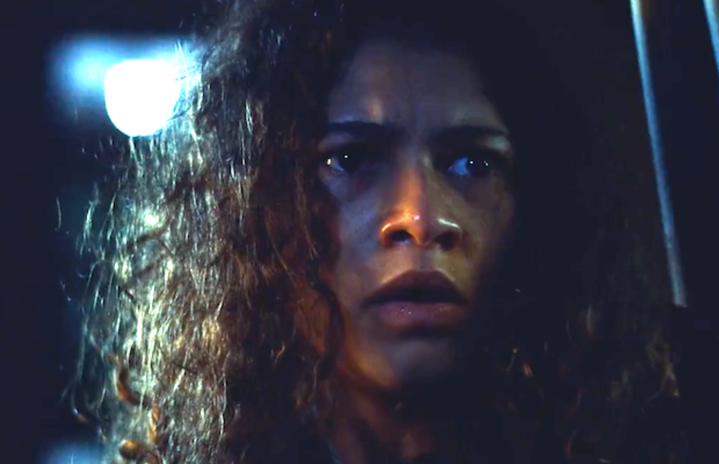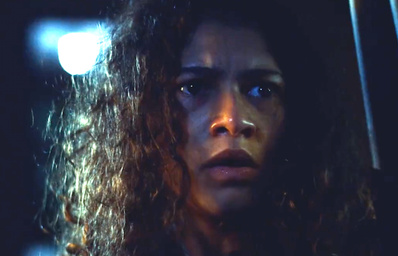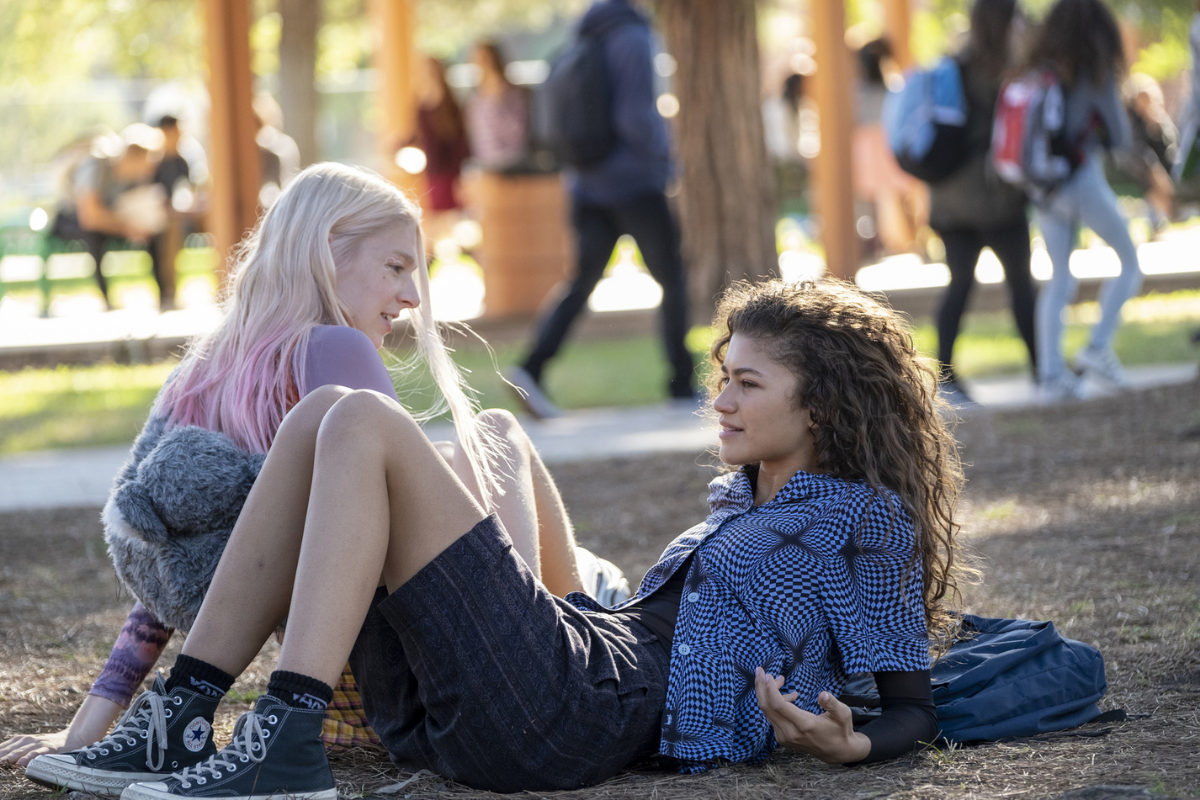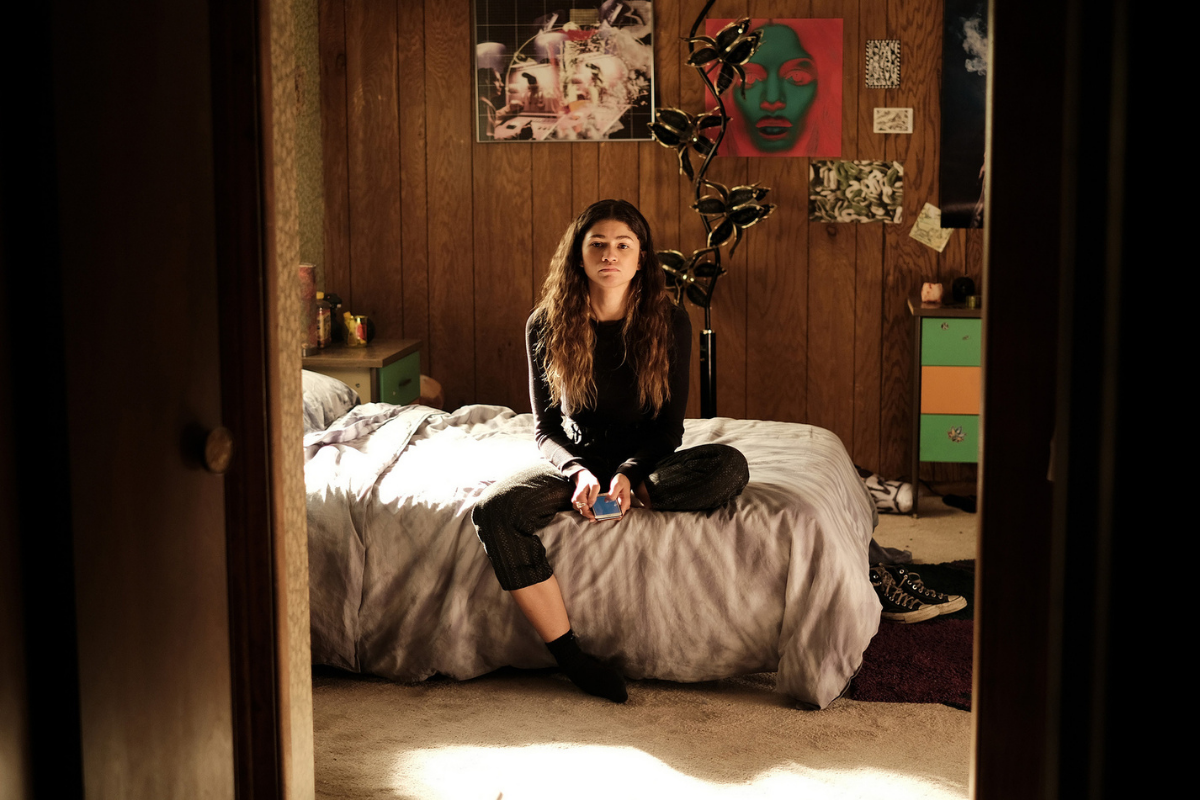A feeling or state of intense excitement and happiness. That’s how Google defines the word “euphoria”––but I doubt it’s what comes to mind anymore when American teenagers hear the word.
The HBO series Euphoria took the world by storm when it first premiered during the summer of 2019, and it’s grown even more popular ever since the second season dropped in January 2022.
The show is everywhere: tutorials for Euphoria-themed parties, in which teenagers smear themselves with glitter and take starkly lit photos of themselves, are all over Pinterest; convoluted theories about the plot abound on Twitter; endless fan-cams of the beautiful, photogenic cast populate TikTok. Suffice it to say, if you’re on social media in any capacity, you know this show (and you know it well).
And while I enjoy the show, particularly for its gorgeous, haunting cinematography and exquisite soundtrack, I’m not so sure if its popularity is a good thing. Because although Euphoria solely revolves around the lives of conventionally attractive, drama-prone teenagers, it is incredibly dark.
The main cast consists of suicidal drug addicts, traumatized victims of sexual assault, and vicious domestic abusers—all of whom are children. The plot is rife with damaging hypersexuality, abortions, bitter psychological wounds, drug deals, child pornography, overdoses, girls getting choked, and real-life Russian roulette.
It is a glimpse into reality, yes, and perhaps an important one. But sometimes it seems as if the young protagonists of this show experience trauma for trauma’s sake, and I think that message can be deeply harmful.
Most high-school shows are not particularly insightful or artistically meaningful. Many of them, such as Riverdale or Outer Banks, often veer into cheesy ridiculousness, known for their corny dialogue and absurd plots. Euphoria, on the other hand, seems to be aspiring to join the upper echelon of television, that of intricate scripts, subversive acting, and intelligent mise-en-scene. However, the writing “team” (which consists of one white middle-aged man) of Euphoria is not necessarily delivering the flawless plotting of a high-brow show like The Sopranos, nor is the acting too exemplary. Instead, the show is almost completely leaning on the other common features of prestige television: permeating darkness, melancholy, violence, pain.
The most awarded and lauded shows of history—think Game of Thrones, The Wire, Breaking Bad—are stories of suffering and criminality, lives ruined and lives lost. By the series finales of these shows, few main characters are alive, much less unscathed, and the horrors they endured during the show’s tenure are often too graphic to recall.
Unfortunately, this seems to be the direction Euphoria is going in as well, as we watch the characters hurt each other, hurt themselves, and slowly, painfully fall apart. But what separates these exemplary series from Euphoria is near-flawless competency—the slick plotting and breathtaking acting allow the audience to gasp with understanding when the loose strands are perfectly tied together or the overall thesis of the show is finally revealed, knowing every hardship the characters endured was absolutely integral to the message of the show.
Euphoria—not so much.
There is nothing wrong with depicting the depressing, difficult parts of life, whether they are natural (grief, lost love) or societal (addiction, sexual violence). However, Euphoria doesn’t just depict these tragedies, it relishes them. There’s often no solid rationale behind why these young people are willingly engaging in such grotesque behaviors, and the writing is so flimsy that I don’t see a profound, illuminating finale in the future.
Interestingly, some deeply powerful films, such as Manchester on the Sea or We Need to Talk About Kevin, do act as meditations on the pointlessness of suffering, presenting the idea that violence, death, rape, and addiction are just things that happen. There is no reason, there is no grand plan, there is no understanding.
But Euphoria doesn’t quite fit in this category either, both because I don’t believe it intends to act solely as a contemplative piece and because those who helm the show do not exhibit the self-possessed, clear-headed prowess needed to create a show like that.
To be frank, I don’t think Euphoria knows what it is. It relies on the idea that trauma creates prestige and that anguish is aesthetically pleasing—endlessly highlighting beautiful, cruel teenagers entering drug-induced trances, having violent, graphic sex, dripping in sparkles and gazing, dead-eyed, into the camera as they ruin themselves, their families, and their friends.
But the plot is too whimsical and thin to warrant the lengthy, dreamy shots or the endless, meaningless subplots—an entire episode is dedicated to a character’s father’s repressed homosexuality, and many scenes or lines that would finally move the plot forward turn out to be hallucinations. Instead, the plot moves at a positively glacial pace, hours of runtime are dedicated to ideas that ultimately affect nothing, and the characters are constantly stuck in cycles of abuse, addiction, and loathing with no larger point being made at all.
However, my largest qualm with Euphoria isn’t its messy script or occasionally subpar acting. It’s that this show is entirely marketed to young people, particularly teenage girls. And I struggle with the fact that the main characters are sixteen-year-olds cam-girling for older men and displaying graphic nudity—even if the actors are of age, why should we be vividly watching under-age characters have raw sex (especially as imagined and directed by middle-aged men)? I struggle with the fact that drug use, although not explicitly glamorized, is depicted somewhat seductively; beautiful colors, soaring music, angelic faces all swirling together as the characters shoot up or overdose.
The series tries so hard to be deep, edgy, and provocative that it becomes simply a conduit for constant trauma porn and pointless shock value—which maybe isn’t great viewing for a generation already exposed to copious amounts of bloody violence and sexual horror during their hourly social media scroll.
For all of its faults, Euphoria is certainly interesting and occasionally a fairly accurate depiction of our current zeitgeist. But I think it’s also a glaring example of several flaws in contemporary media: that suffering is inherently beautiful, that agony, in and of itself, is artistically valuable, and that the sexualization of young girls is necessary and normal.
I will continue to watch Euphoria, if only to bemoan the likely lackluster finale, but I will try to keep in mind—and remind others—that the stunning glamor and pervasive darkness of the show do not a masterpiece make.




